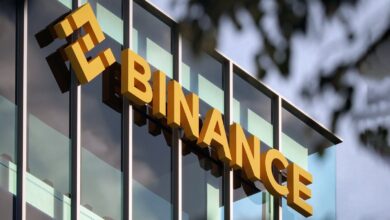Arthur Hayes Anticipates Bitcoin’s Stupendous Rise as Middle East Tensions Escalate

Arthur Hayes, co-founder of BitMEX, recently published a thought-provoking blog post in which he drew parallels between the dangers of avalanche terrain and the precarious geopolitical landscape of the Middle East. His insights centered on how the ongoing Israel-Iran conflict could dramatically impact global financial markets, particularly energy prices and the crypto market.
Hayes compared the geopolitical situation in the Middle East to a “persistent weak layer” (PWL) in avalanche science, a term used to describe a fragile layer of snow that can cause avalanches under stress. He believes the conflict, especially any escalation involving Israel and Iran, could trigger an “avalanche” in global markets, particularly affecting oil supply and energy prices. Hayes identified two key scenarios: the conflict either fizzles out with minor skirmishes or escalates into a full-scale war involving the destruction of Middle Eastern oil infrastructure.
Crypto in the Eye of the Storm
Despite the potential risks, Arthur Hayes emphasized the resilience of Bitcoin and the broader crypto market. He pointed out that even if a war caused widespread destruction, including the annihilation of Iran’s Bitcoin mining operations (which account for around 7% of the global hash rate), the impact on Bitcoin’s network would be minimal. He drew a comparison to China’s 2021 Bitcoin mining ban, which led to a 63% drop in hash rate but saw the network recover within eight months. Hayes believes that even with Middle Eastern crypto mining disrupted, Bitcoin would continue functioning without major setbacks.
Hayes argued that energy prices spiking due to the destruction of oil infrastructure in the Middle East could, in fact, boost Bitcoin’s value. As Bitcoin is often seen as “stored energy in digital form,” higher energy costs would likely increase its fiat price. He pointed to historical examples, such as the 1973 Arab oil embargo and the 1979 Iranian revolution, where gold prices surged alongside oil, as a precedent for how Bitcoin might behave in a similar situation.
Additionally, Hayes highlighted the inevitable monetary impact of a prolonged Middle Eastern conflict. With the U.S. government borrowing more money to fund Israel’s war efforts, the Federal Reserve would likely need to expand its balance sheet. Hayes predicted that this money-printing would benefit Bitcoin, as the cryptocurrency has historically outperformed the growth of the Fed’s balance sheet. In this environment, Hayes believes Bitcoin will rise substantially in fiat terms.
Arthur Hayes’ blog post ultimately underscored the resilience of Bitcoin and the broader crypto ecosystem in the face of geopolitical and financial uncertainty. While the Middle Eastern conflict poses significant risks to global markets, Hayes believes that Bitcoin, as a decentralized and deflationary asset, is well-positioned to weather the storm and continue rising in value over the long term.
Despite his long-term bullish outlook on Bitcoin, Hayes acknowledged the potential for short-term volatility, particularly in “meme coins” and smaller cryptocurrencies. He revealed that he had reduced his exposure to these high-risk assets in the wake of increased hostilities between Israel and Iran, while continuing to focus on Bitcoin and staking opportunities. He cautioned that price volatility could be intense, and investors should carefully size their positions to avoid significant losses.
Hayes concluded by advising traders, stating “The best thing to do is to get yourself and your family out of harm’s way and then shepherd your capital into a vehicle that outperforms fiat debasement and maintains its energy-purchasing power”.





